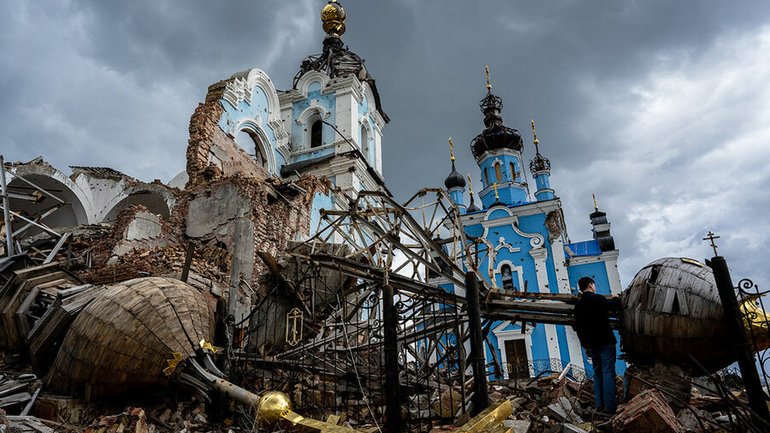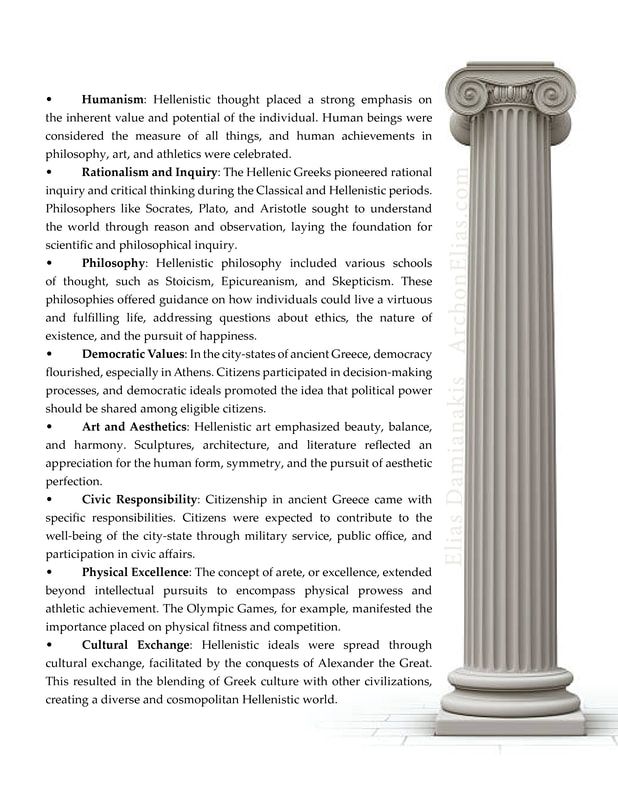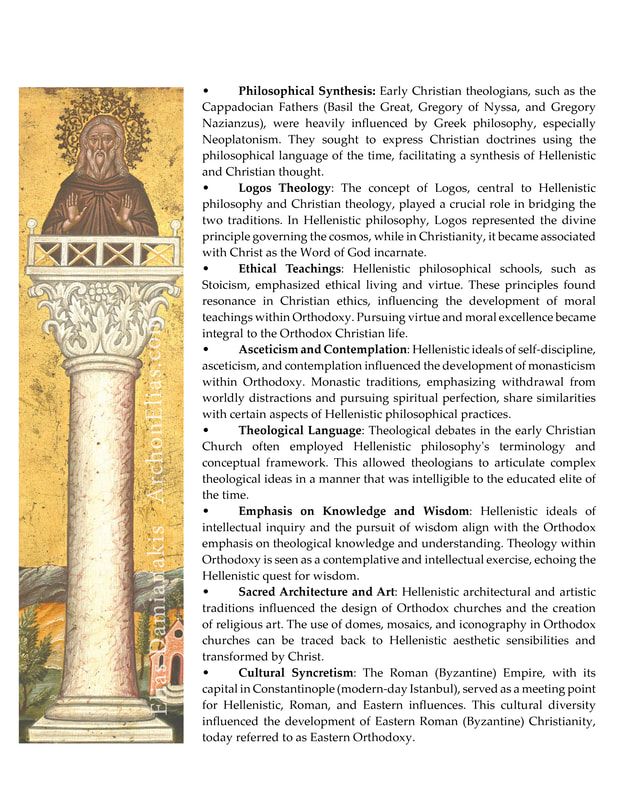Echoes of Orthodoxy: Navigating Faith, Tradition, and Modern Challenges

Archon Elias Damianakis
Patriarch Bartholomew, Archbishop of Constantinople and Ecumenical Patriarch, has denounced the Patriarchate of Moscow for its attempts to “justify an unjustifiable, unholy, unprovoked, diabolical war against an independent country.” He has reminded us that “the Russian Church must share the blame for the crimes committed in Ukraine.” Despite the few rational voices within my church, silence implies approval, and I do not endorse it.
The simulation of a Patriarch, the local bishop of Moscow, Cyril, encourages our children to murder fellow Orthodox believers, promising them martyrdom and direct entry into paradise. You may argue that he addresses only his flock, but that's a misguided perspective. There is one Church, one Chalice, and one Voice. We are the Body, not a collection of separate organs —Russian, Serbian, Albanian, Greek… What Father Andrew preaches in my neck of the woods should align with what Father Hilarion preaches in Siberia. Does it?
I do not align with the vocal faction, primarily composed of Orthodox converts and their devotee supporters. You know, the aptly dubbed Orthodox Taliban. Their resistance is often based on deeply ingrained Protestant presuppositions, leading to a perpetually rebellious stance against perceived papal-style authority in Orthodoxy, constantly seeking out a new "pope" to protest.
My allegiance is to the Orthodox Church, Christ's Great Church. We have clear doctrines and norms established at the Ecumenical Councils. This way, neither Pastor Billy-Bob, who is now an Orthodox priest, nor the simulacrum Patriarch Cyril's imitations can lead us astray. Regrettably, many fall prey to this masquerade of Orthodox duplicities. Our nominal brethren, who lack the ecclesiastical preparedness to navigate the void of authentic leadership, are most at risk. They are further scandalized as nominal shepherds lead the flock astray, making declarations that are antithetical to Christ's message.
Autocephaly does not signify unchecked autonomy. For centuries, the status-quo Russian mindset has significantly shaped the church's agenda, tarnished the body, and contributed to the de-Hellenization of Orthodoxy. Beyond attempting to "knock the Greek out of us," they go even further, surpassing the baseless racial stereotypes laughably linked to Baklava and Gyro. Strangely, they extrapolate and assign ethno-phyletism to those whom they wrongly believe perceive them as inferior—a manifestation of a “woke Napoleon complex.”
Hellenism refers to the cultural, philosophical, and artistic traditions that emerged in ancient Greece and Rome. The ideals of Hellenism encompassed a broad range of principles and values that profoundly impacted the development of Western civilization. Orthodoxy gestated within the realm of Hellenism, undergoing a mystical metamorphosis that subsequently turned the cosmos into a sacred space, shaping the earth into the field of salvation.
Orthodoxy, particularly Eastern Roman Christianity, has been influenced by Hellenistic ideals in various ways, given the historical and cultural context of the Roman (Byzantine) Empire and the convergence of Greek philosophical thought with Christian theology.
Here are some critical aspects of Hellenistic ideals transfigured by Orthodoxy:


Orthodoxy is "Hellenic," not ethnically Greek, as some charlatans would mislead you to believe. Russians began imposing Russkiy Mir: a standardization according to Russian norms, not Orthodox norms. Before these intentional innovations, stepping into any Orthodox church worldwide would reveal nearly identical worship services, spaces, and phronema, differing only in the vernacular.
Russian Romanticism, from 1820 to the conclusion of World War I, perpetually casts a deleterious influence on the church's self-perception, understanding, and external expression. As the universal body of the church gradually emerges from a prolonged slumber of oppression, the impact of this historically destructive period lingers. We've transitioned from a united Orthodox Tradition that embraced vernacular elements to a multitude of misguided Russian innovations under the guise of diversity.
For example, instead of Tchaikovsky or Rachmaninoff’s Divine Liturgies… Orthodoxy echoed those musical compositions of St. Romanos the Melodist (circa 490–556), St. John of Damascus (676–749), St. Kassia (circa 810–867), and St. Gerasimos Mikragiannanitis (1905-1991). All revered composers whose hymn compositions still resonate within all the expressions of the Eastern Orthodox Church.
Even mentioning the Russian choral tradition, which has seeped into many traditions, is foreign to our genuine Orthodox expression; it triggers an inflated and demeaning response from even the most meager individuals. These misguided Russian innovations in art, architecture, music, spiritual phronema, and even Ecumenical Canons and ecclesiology threaten to fragment our unified Orthodox Tradition.









